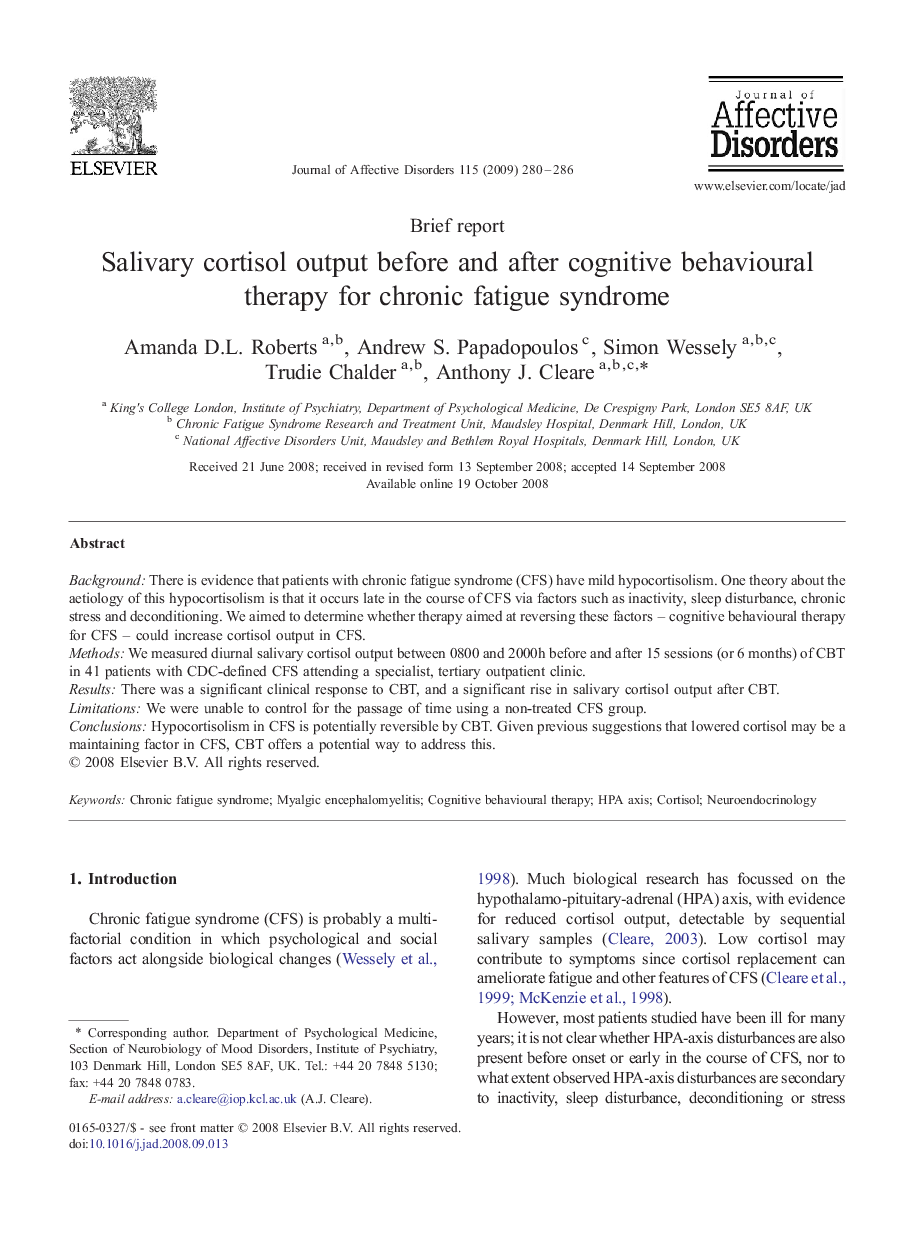| کد مقاله | کد نشریه | سال انتشار | مقاله انگلیسی | نسخه تمام متن |
|---|---|---|---|---|
| 6236798 | 1608205 | 2009 | 7 صفحه PDF | دانلود رایگان |

BackgroundThere is evidence that patients with chronic fatigue syndrome (CFS) have mild hypocortisolism. One theory about the aetiology of this hypocortisolism is that it occurs late in the course of CFS via factors such as inactivity, sleep disturbance, chronic stress and deconditioning. We aimed to determine whether therapy aimed at reversing these factors - cognitive behavioural therapy for CFS - could increase cortisol output in CFS.MethodsWe measured diurnal salivary cortisol output between 0800 and 2000h before and after 15 sessions (or 6Â months) of CBT in 41 patients with CDC-defined CFS attending a specialist, tertiary outpatient clinic.ResultsThere was a significant clinical response to CBT, and a significant rise in salivary cortisol output after CBT.LimitationsWe were unable to control for the passage of time using a non-treated CFS group.ConclusionsHypocortisolism in CFS is potentially reversible by CBT. Given previous suggestions that lowered cortisol may be a maintaining factor in CFS, CBT offers a potential way to address this.
Journal: Journal of Affective Disorders - Volume 115, Issues 1â2, May 2009, Pages 280-286